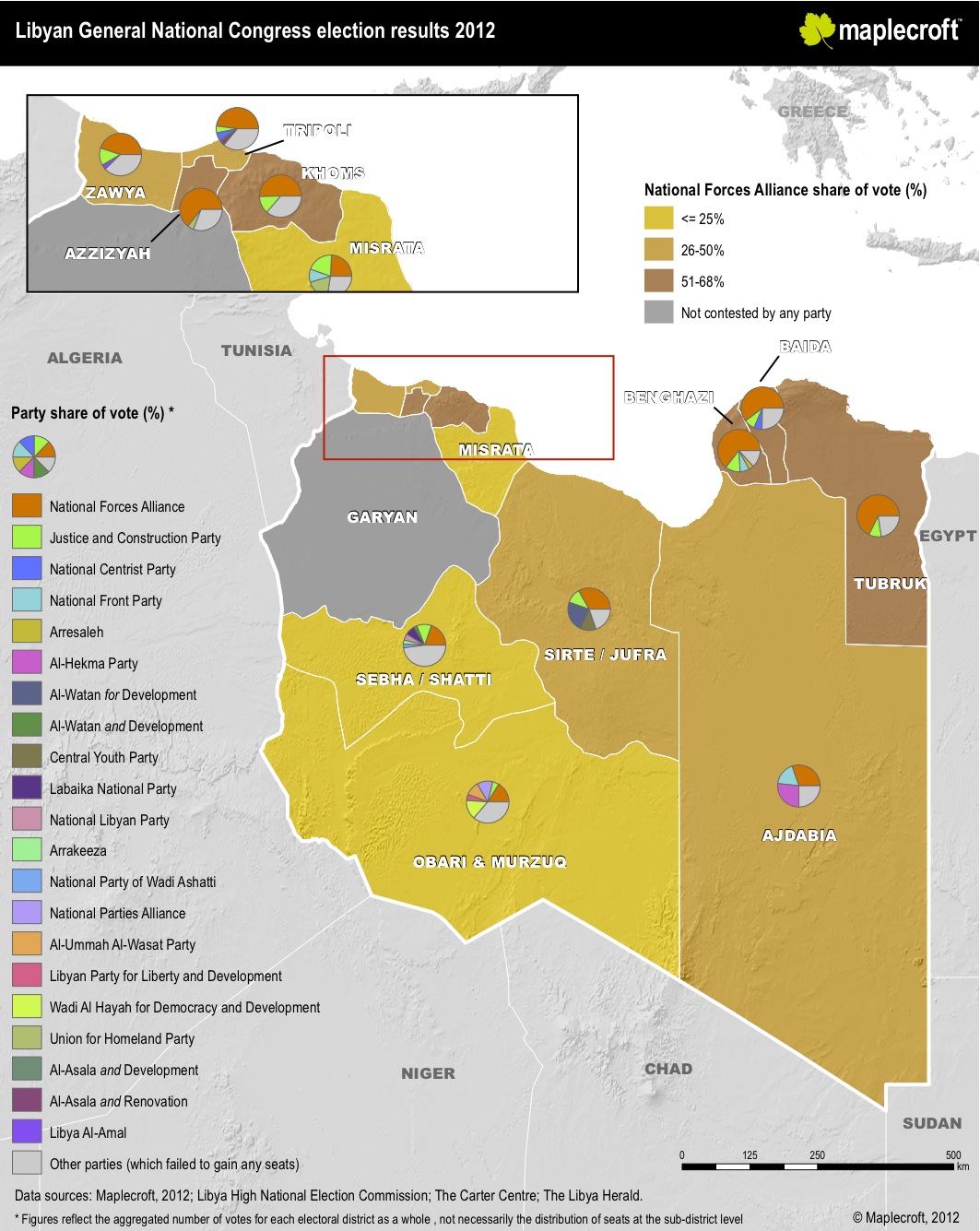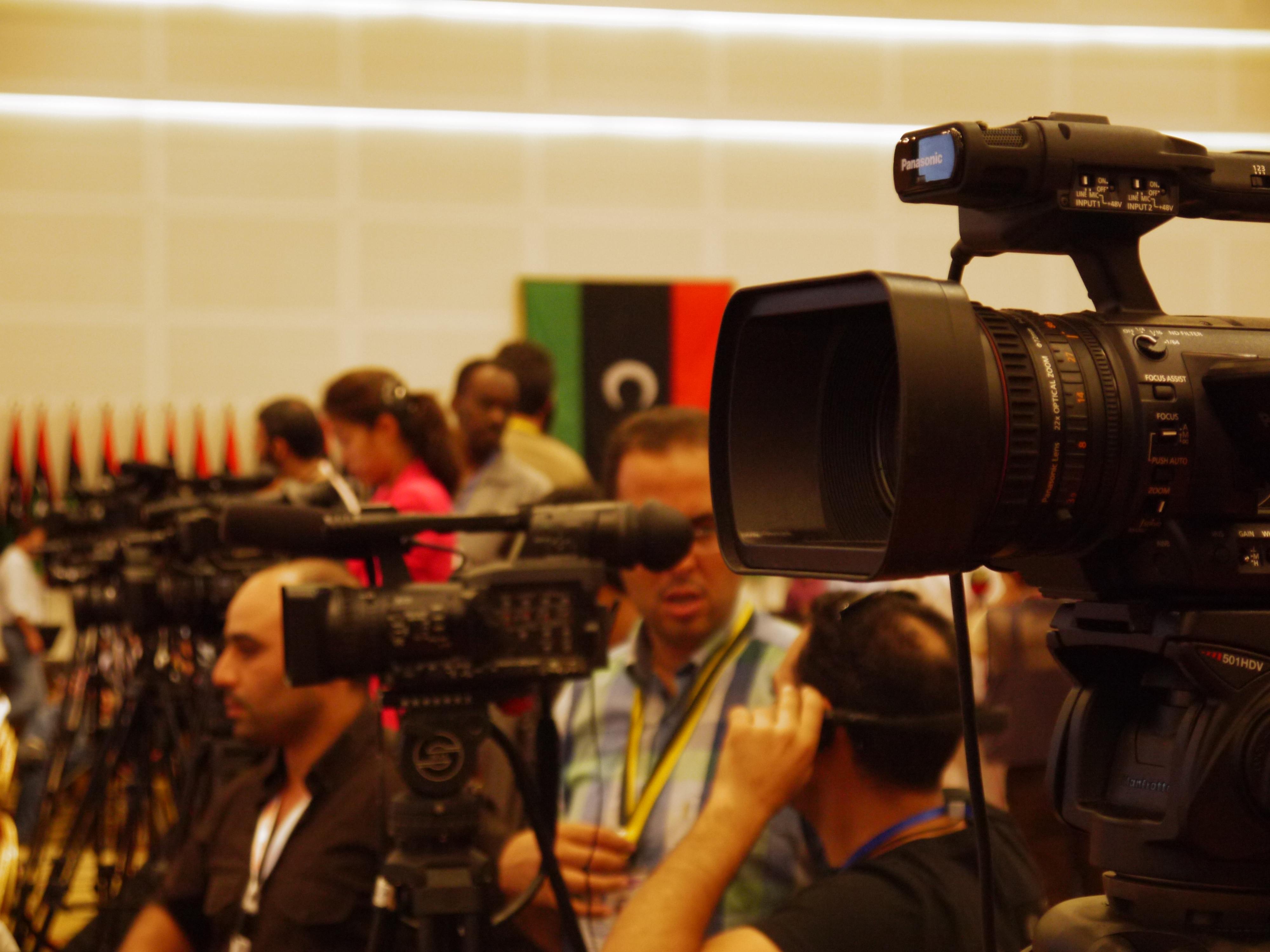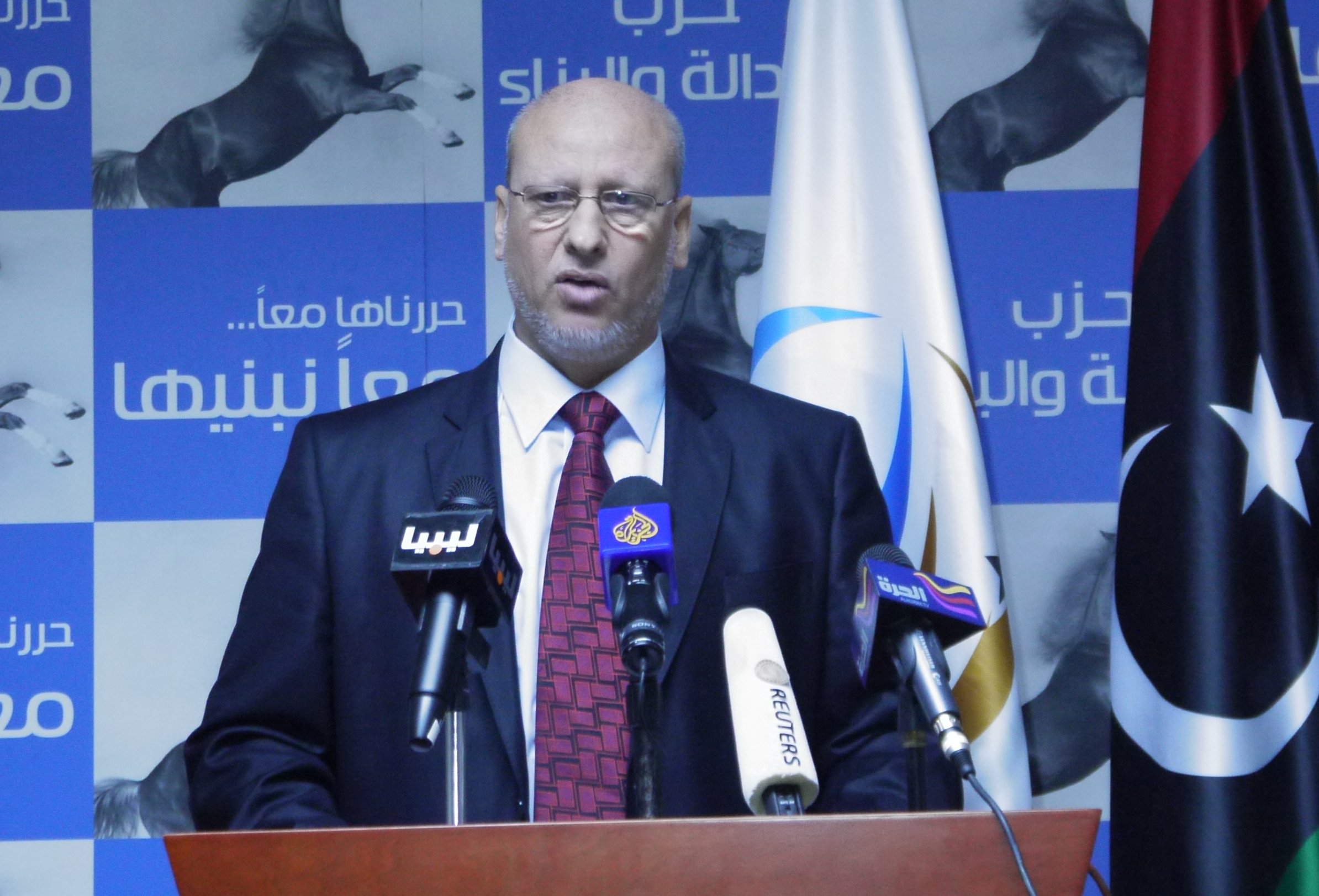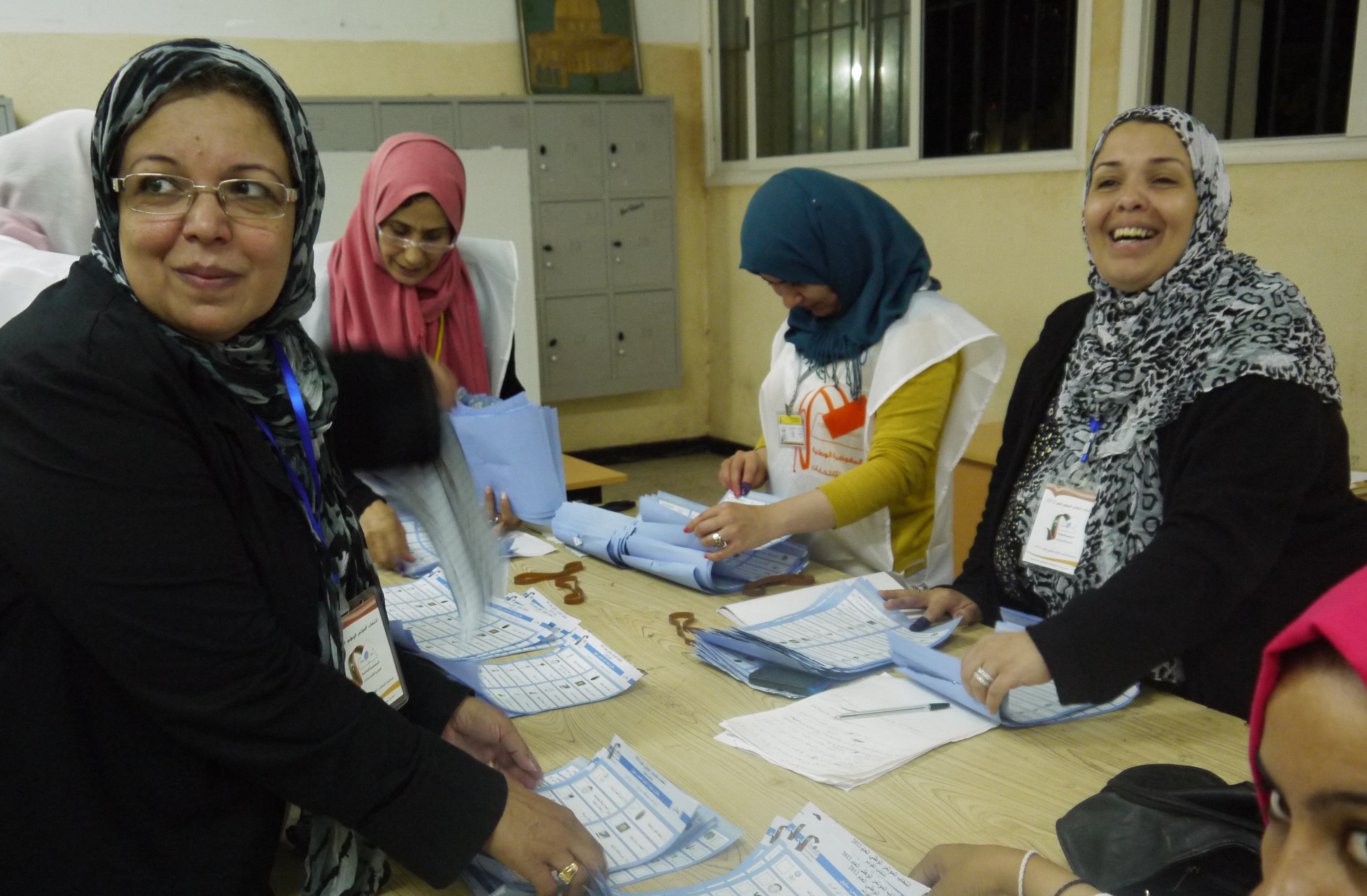By Michel Cousins.
Tripoli, 6 July:
The EU team that is monitoring and assessing the conduct of tomorrow’s National Congress elections will produce . . .[restrict]a preliminary report on the poll on Monday, 9 July. A fully detailed report which will be handed over to candidates, the government, the High National Election Commission (HNEC), local authorities, civil society organisations, NGOs and to parties and candidates, will probably take another couple of months to complete.
On Thursday, the head of the team, Alexander Graf Lamsdorff, flew in to Tripoli and headed straight from the airport to Azizia and then Gharian to get initial reports on the elections from local HNEC officials and EU monitors on the ground. He also met with local candidates.
Lamsdorff, a German member of the European parliament, has previously led EU monitoring delegations to election in Kenya, Bangladesh and Guinea Conakry,
There are 21 members from 18 different EU states in the team, seven of them core members while the other 14 are working on the ground in seven two-member teams spread across the country. They are assessing the conditions in Tripoli, Benghazi, Torbuk, Misrata and so on. The only one of the 13 constituencies in which they are absent, because of security issues, is Kufra.
In Aziziya, divided into six sub-constituencies, Lamsdorff was told by the head of the local HNEC office, Musbah Milud Al-Badawi, that 73 percent of the potential electorate had registered to vote, the highest such figure in the country, and that while there had been challenges in mounting the contest, there was “great optimism” about it. As to counting the vote, Badawi said that it would probably take about four or five hours and, that done, the results would be sent to the HNEC Tripoli; results would not be announced locally.
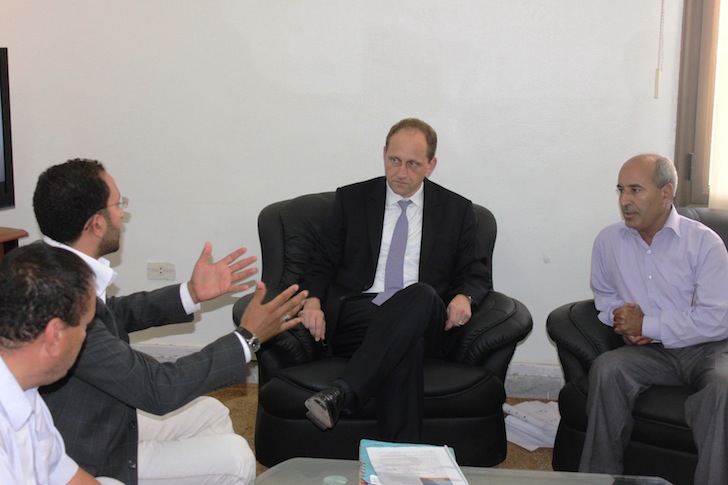
The final EU report, Lamsdorff told Badawi, would “identify the things that went well [in the elections] and the things where improvements might be made”. But he emphasised it would be wholly up to Libyans to accept or reject the ideas. “We do not want to interfere at all.”
“What Libyans decide to use [from the report]”, he later told Libya Herald, “is their decision”. The presence of the assessment team was purely an attempt to support Libya’s transition from dictatorship to democracy.
For his part, Badawi welcomed “any analysis or advice . . . We count on the EU to help Libya grow and develop,” he said, asking Lamsdorf to relay that message to the European parliament.
In Gharian too, where there is no party lists system and all the candidates for the 17 seats are independents, the EU was thanked for its support for Libya.
Lamsdorff, who was briefly in Libya last month, is due to stay for the next five days. He plans to return after Ramadan. [/restrict]
